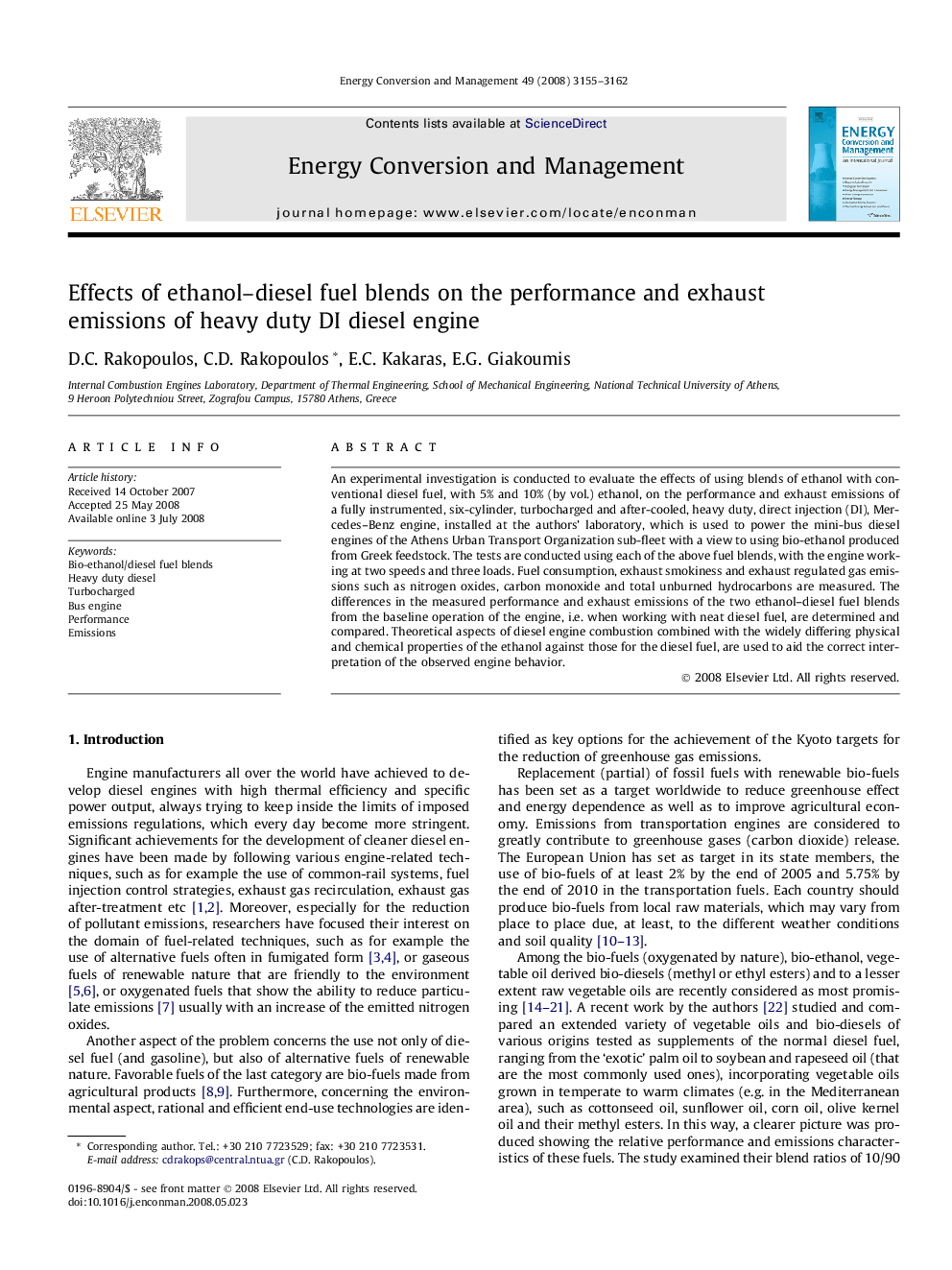| Article ID | Journal | Published Year | Pages | File Type |
|---|---|---|---|---|
| 766452 | Energy Conversion and Management | 2008 | 8 Pages |
An experimental investigation is conducted to evaluate the effects of using blends of ethanol with conventional diesel fuel, with 5% and 10% (by vol.) ethanol, on the performance and exhaust emissions of a fully instrumented, six-cylinder, turbocharged and after-cooled, heavy duty, direct injection (DI), Mercedes–Benz engine, installed at the authors’ laboratory, which is used to power the mini-bus diesel engines of the Athens Urban Transport Organization sub-fleet with a view to using bio-ethanol produced from Greek feedstock. The tests are conducted using each of the above fuel blends, with the engine working at two speeds and three loads. Fuel consumption, exhaust smokiness and exhaust regulated gas emissions such as nitrogen oxides, carbon monoxide and total unburned hydrocarbons are measured. The differences in the measured performance and exhaust emissions of the two ethanol–diesel fuel blends from the baseline operation of the engine, i.e. when working with neat diesel fuel, are determined and compared. Theoretical aspects of diesel engine combustion combined with the widely differing physical and chemical properties of the ethanol against those for the diesel fuel, are used to aid the correct interpretation of the observed engine behavior.
